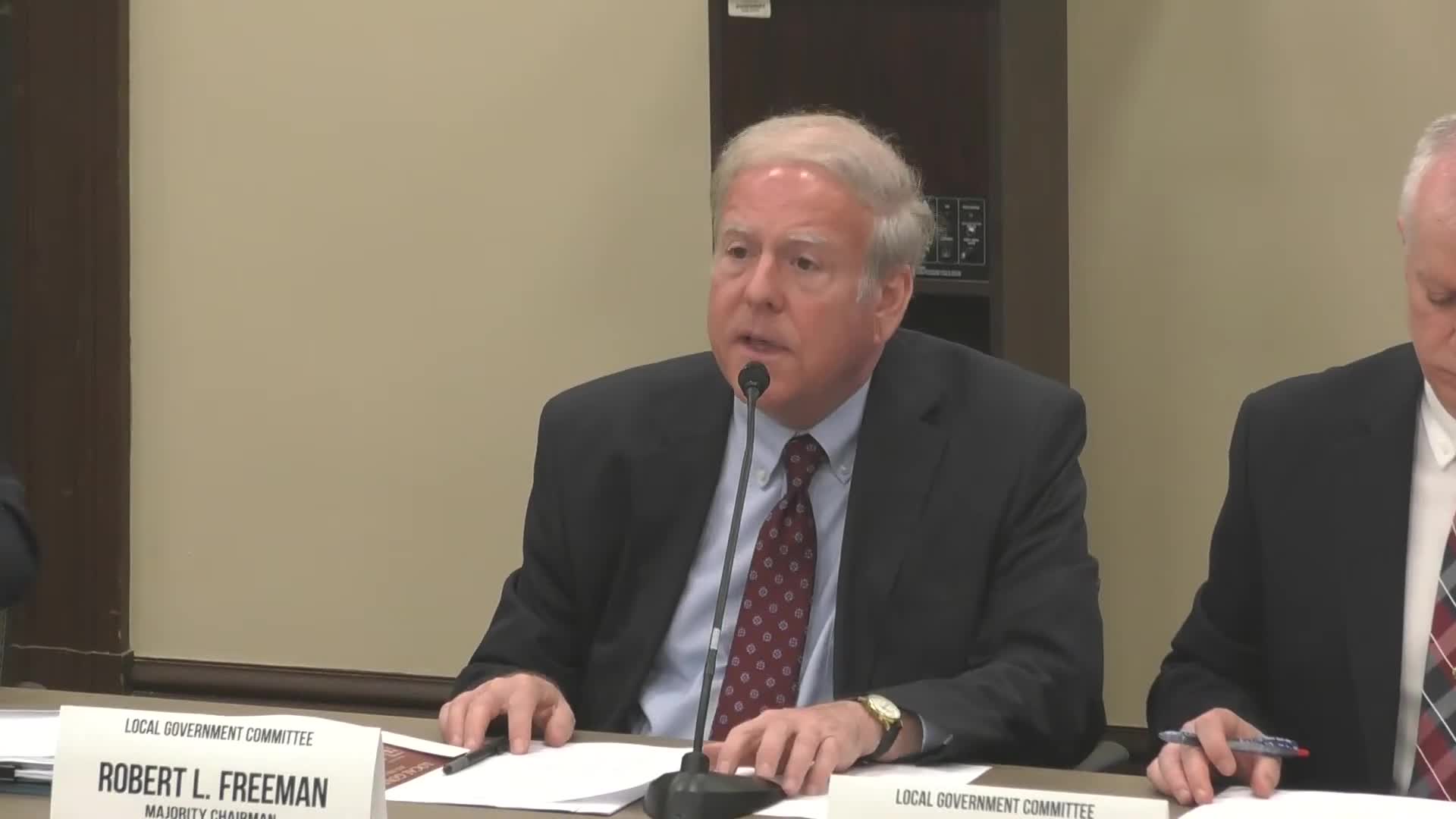Article not found
This article is no longer available. But don't worry—we've gathered other articles that discuss the same topic.
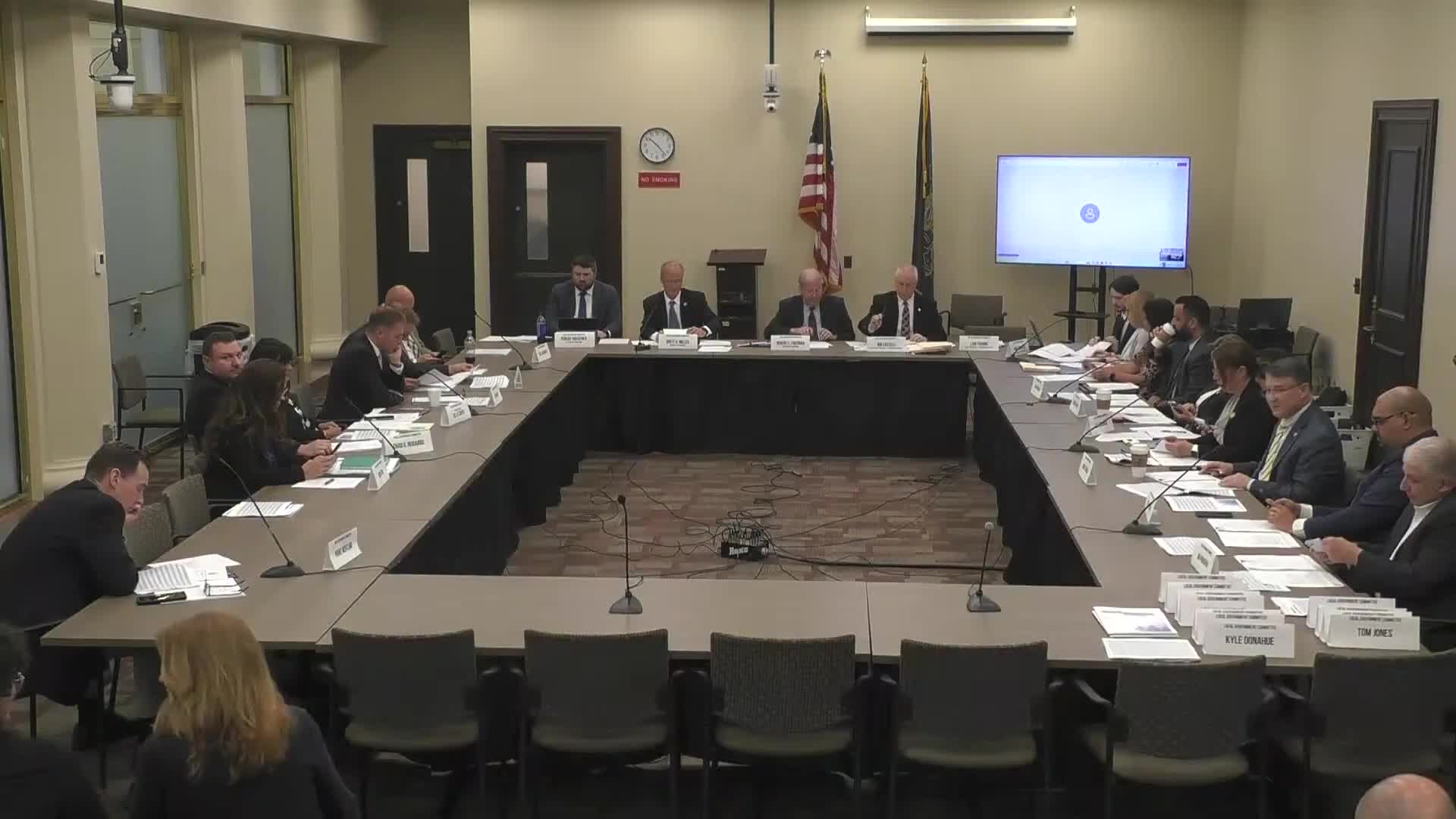
Committee advances bill requiring municipalities to notify property owners of FEMA flood-map changes
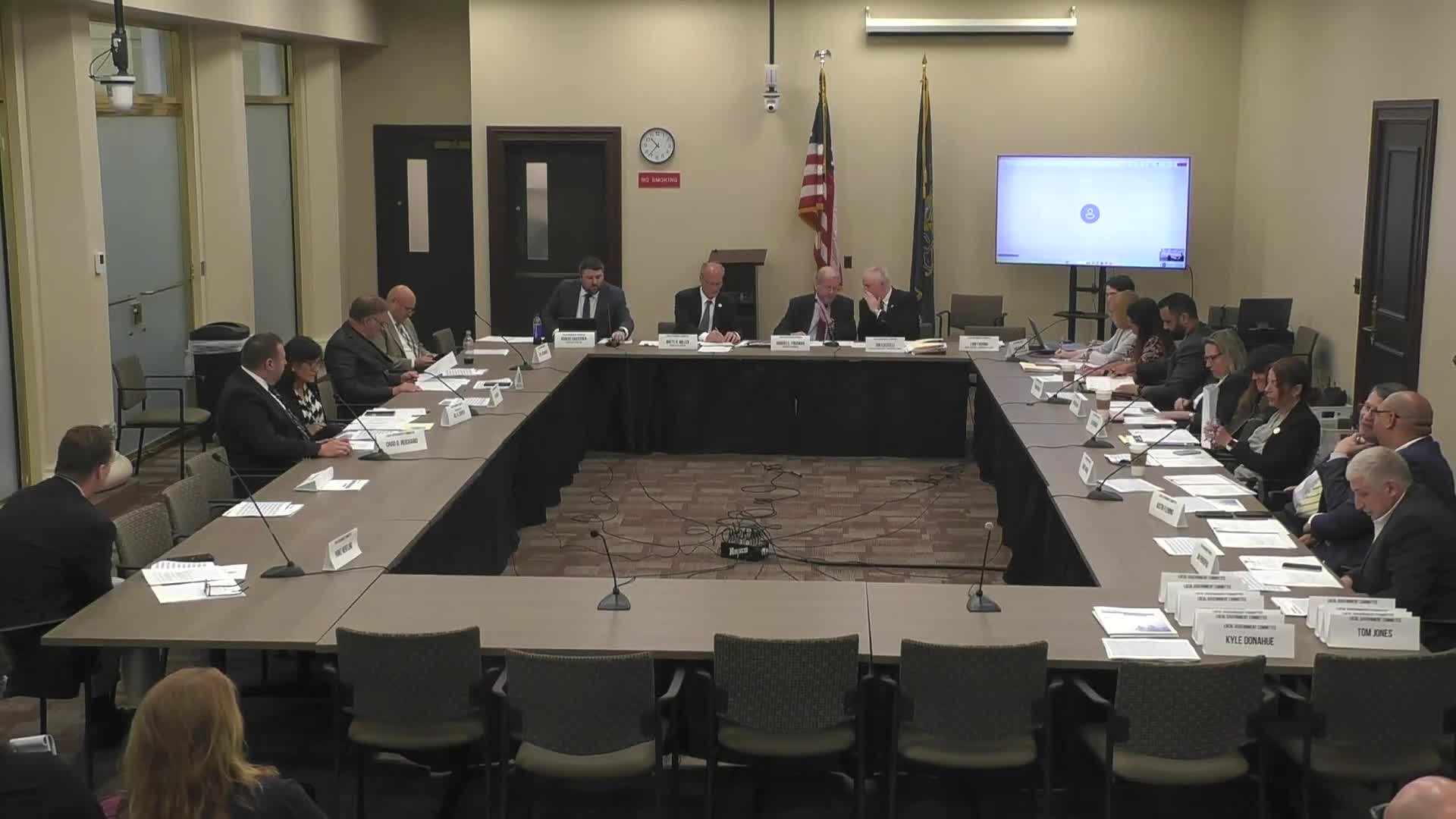
Panel approves allowing second‑class townships to accept letters of credit instead of bonds
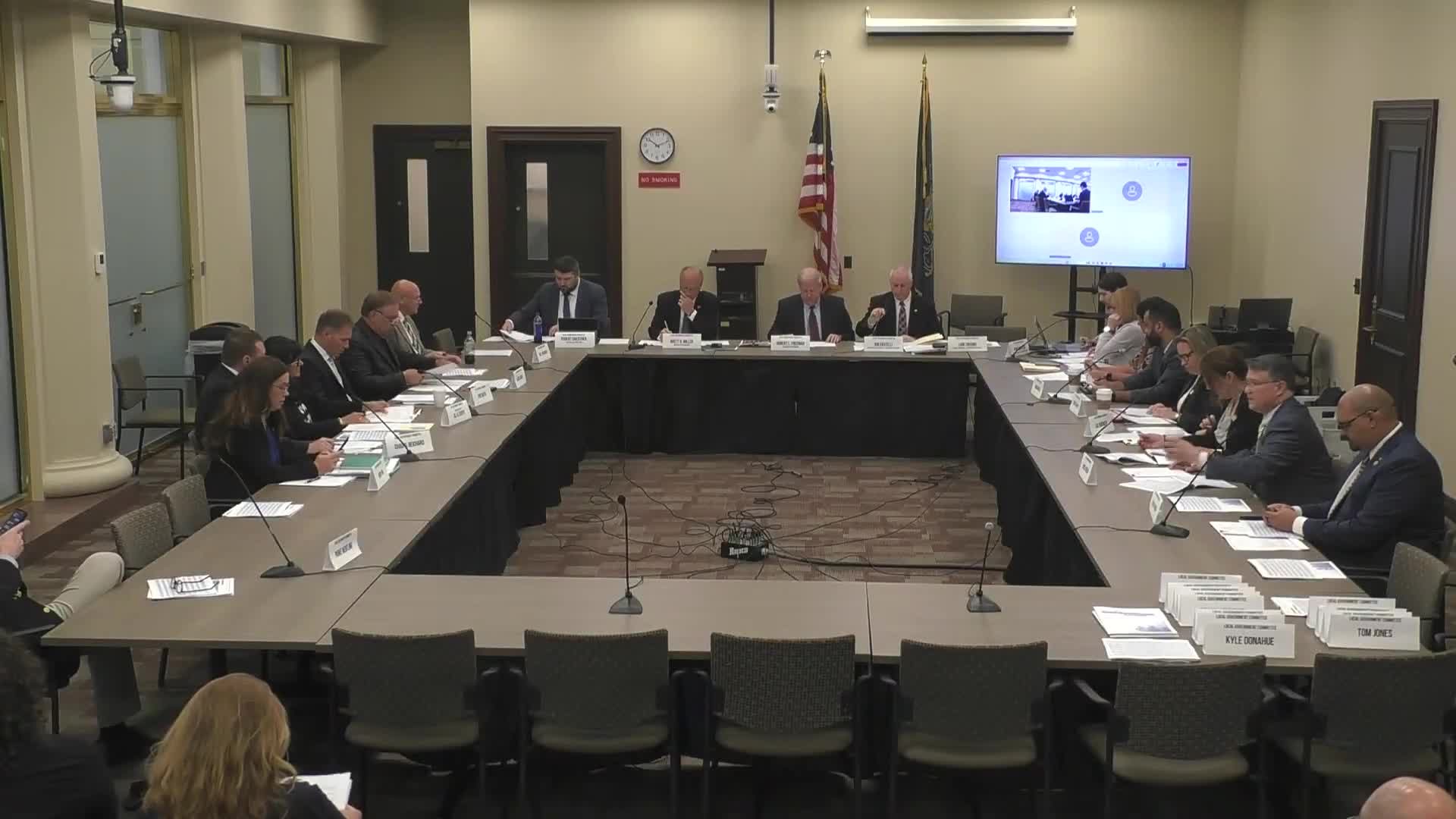
House panel unanimously backs bill to lift $100 cap on borough appropriations for associations
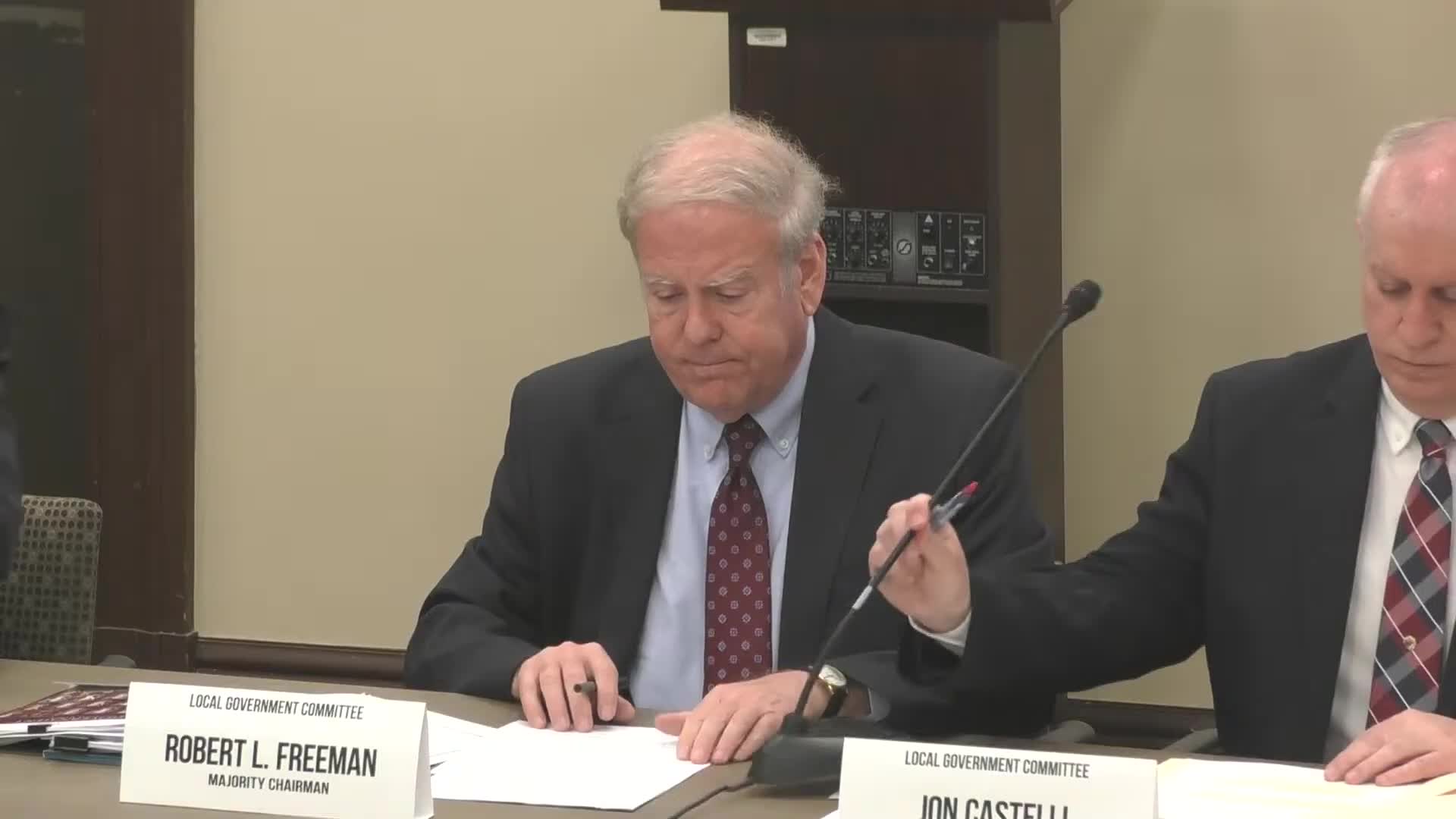
Panel sends resolution urging Congress to create $5 trillion National Infrastructure Bank after close 14–12 vote
